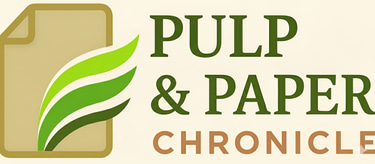When the global pulp and paper industry moves, we report it first — trusted by 3,000 subscribers across 30 countries
The Strategic Consolidation Wave Hits Europe: What International Paper's German Closures Tell Us About the Future of Packaging
BLOGS
Jino John
11/14/20252 min read


After tracking the global paper and packaging industry, yesterday's announcement from International Paper caught my attention—not because it's surprising, but because it's a textbook example of the consolidation pressures reshaping our industry.
The Numbers Behind the Headlines
International Paper plans to shutter five facilities in Germany by end of 2026:
1 conventional box plant
1 display and offset site
3 sheet plants
Partial closure of 1 additional display site
Impact: ~500 jobs
But let's look beyond the headlines to understand what's really driving this decision.
The Post-Merger Reality Check
This move comes less than a year after IP's all-share combination with DS Smith plc on January 31, 2025—a mega-merger that created a North American and EMEA packaging powerhouse with $18.6B in net sales. The company explicitly states this represents a "change to previously stated intentions" regarding DS Smith operations.
Translation: The pre-merger promises of "synergy without significant restructuring" have met the harsh reality of operational due diligence.
Three Market Forces at Play
From my analysis, three critical dynamics are converging here:
1. Overcapacity in European Corrugated Central Europe has been dealing with structural overcapacity for years. Germany, despite its manufacturing strength, faces:
Declining print-based packaging demand
E-commerce shift reducing need for display/offset capabilities
Energy costs making older facilities uncompetitive
2. Portfolio Rationalization Post-M&A When two major players combine, you inevitably have geographic overlap. IP is clearly:
Eliminating redundant sheet plants
Consolidating box plant networks
Rationalizing specialized capabilities (display/offset)
3. The "Sustainable Packaging Solutions" Pivot IP's stated goal to become a "stronger sustainable packaging solutions company" isn't just corporate speak. It signals:
Moving away from commodity sheet/box production
Focusing on value-added, integrated solutions
Investing in facilities with modern, efficient equipment
What This Means for the Industry
For Competitors: Watch for similar announcements from other European players. Smurfit Kappa, Mondi, and regional players will face pressure to match IP's cost structure.
For Customers: Short-term supply tightness in specific German markets, but long-term this drives efficiency and potentially better service from consolidated operations.
For Employees: The 500-job impact is significant, but it reflects a brutal truth—our industry needs fewer, better facilities, not more marginal ones.
For Investors: This is disciplined capital allocation. IP is choosing profitability over revenue, integration over expansion.
The Bigger Picture
We're witnessing the maturation of the European packaging market. The days of running marginally profitable plants "for strategic presence" are over. The new playbook is:
Run world-class facilities at high utilization
Exit subscale, non-competitive assets
Invest in automation and sustainability
Serve customers from fewer, better locations
International Paper's move isn't a sign of weakness—it's a signal that management is serious about creating shareholder value in a consolidating market.
Looking Ahead
I expect 2025-2027 to be a period of significant European packaging industry restructuring. The companies that move decisively now will have sustainable competitive advantages. Those that delay will face margin pressure and lose ground.
The question isn't whether more closures are coming—it's who moves next.
